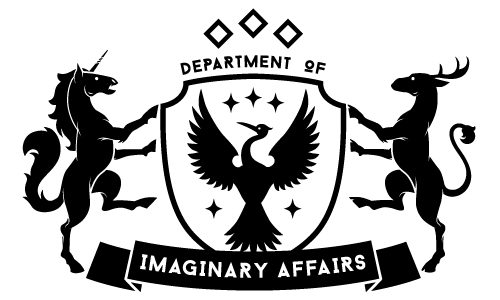We are catching up on all our reflections. Mathura has been a busy bee the last few months getting our multi-workshop pilot tested and refining our curriculum to meet the needs of settlement agencies and newcomer participants. I am grateful that she took the time to digest some of her learning and share it with us here.
And in the next few weeks, you can expect a few more posts from us. I promised a post about the Practitioners Gathering and one more about the process of writing a 5 year funding application.
I have said it before, but we are still wrapping our heads around the fact that this next year is actually a full calendar year. We are making plans for how we expand to Ontario-wide and how we pivot some of our initial thinking around this work. It definitely is going to be an exciting year, there is no doubt about that.
This work has taken us on a wild ride already, and if you didn’t think so, find out from Mathura how our work and One Direction are connected.
Jenn
In March and April, we piloted our first multi-workshop series for The Stories of Us project. We conducted these pilots with an employment training program at NewCircles and 2 LINC classes at Mennonite New Life Centre. The idea for a multi-workshop series – 6 workshops in total – was informed by insights from our single workshop model. We hypothesized that multiple workshops with the same group of students, held regularly and across a longer period of time would help build deeper trust, foster a stronger connection between participants, and offer them more time to reflect on, process, write, and share their stories. The workshop series consisted of 6 workshops that took place once a week for 2-3 hours, over the course of six weeks. 44 students participated across both pilots, and 28 of them decided to publish their stories with The Stories of Us project. Beyond numbers, this process was rich with learning moments and we share a few of them with you below:
Sharing our stories reminds us that they matter
There’s something beautiful that happens when we share our stories. Especially when they are stories that feel normal and uninteresting to us, we are taken aback when others react to them with anything more than a straight face. When others express curiosity and want to learn more about what we’ve shared, empathy in acknowledging the range of emotions that an experience elicited, awe of the courage we showed in moving through a difficult challenge, or laughter at the ridiculousness of a certain situation, we feel validated. We begin to feel that our story might be important. That it might hold value for others outside of ourselves. We are motivated to tell a more detailed and nuanced version of it and take up more space because we now believe our stories matter. Moments in our lives that were once filled with shame and helplessness are reframed as moments of persistence and courage when they are witnessed and affirmed by others. In these workshops, these affirmations flowed naturally and abundantly, from teachers and from peers. All we needed to do was create the space and extend the invitation.
A more holistic picture of “Starting a New Life”
During one of our workshops, we explored the gap between participants’ expectations of a life in Canada vs. their realities in Canada once they arrived. Acknowledging and grieving this gap, we’ve learned, is an important part of starting to rebuild and managing conflicting feelings like gratitude and feeling cheated out of a dream. “No one tells you about the hard things about coming to Canada. No one that goes to Canada and comes back and shares the hard things because people expect that when you go to Canada, you will be rich. If you tell someone about the hard things, they think you’re being selfish and telling them things that aren’t true so that you can live a better life than them.” These discussions left me with a question: How might we better manage expectations of what immigration to Canada entails, in order to better equip newcomers for their settlement journey?
The stories that we publish aren’t the full story
It makes sense practically. There’s no way we can capture the entirety of someone’s life in a storybook. And yet, there were moments during the workshops when students would reveal an experience or a part of their lives that felt so pivotal in their journey, but wouldn’t write it into their story, and sometimes actively chose to leave it out. T, for example, shared about being married off as a child, attempting suicide multiple times, finding the courage to leave her marriage even though it meant losing custody of her children, fulfilling her dream of becoming a nurse, and finally being able to reunite with her children. In her story, however, she only shared that she loved being a nurse. There were stories that weren’t shared because of fear, shame, privacy, and simply not believing they were important. There are so many stories that went and will go untold, and, equally, the stories that were shared are enough.
Are we causing more pain than is necessary?
I would be lying if I said this question didn’t cross my mind throughout the workshop series. It was especially weighty when students would ask, “That was a hard/bad time in my life, why do I have to remember that?” Moments like these left me speechless. Who was I to ask them to remember things they didn’t want to remember? No, they didn’t have to remember or write about anything they didn’t want to remember or write about, I responded. When students would get emotional during the process of writing, I would do my best to validate and normalize their experience, while simultaneously wondering whether what we were working toward was worth this pain. There was a heaviness in those moments that felt so vulnerably human. I relied heavily on the teachers as barometers, as they knew their students best. They encouraged me to keep going, be present with what came up in each session, and infuse the following sessions with those insights. At the end of the series, we asked the students for their honest feedback. I didn’t ask them directly, but I wanted to know: Did we cause more pain than was necessary? What it worth it? I almost cried reading and hearing their responses:
“We feel motivated when we read our story. From where we started to where we are now. How much we achieved.”
“Stories have a surface. Usually we tell the stories on the surface, but this was different. We were able to go deeply and share the stories we don’t normally tell.”
“For me I had some red [heavy] stories that I wrote in this workshop. After writing, I think I feel better now. Because every day it would be in my mind and I was nervous about it. Now it’s not like that. Writing helped me a lot because I’m not thinking like that anymore. I wrote it, closed it and put it away.”
“It was a kind of psychological work, because when we came here we were very busy doing this and that. I never stopped to think about what I felt or what I was scared of. With this project, I stopped and I started to think. It was good psychological work.”
“I realized that I forgot some parts of my story / past that were very important to me. Thank you!”
“My view of my story has changed because before I thought there is nothing interesting in my life, it’s monotonous, but after remembering each and every part, I realize there are many good things that have happened to me.”
Service providers who care are the real heroes
I want to take a moment to recognize the LINC teachers, Teresa and Marie, and Employment Program Coordinator, Joanna that I worked with for these pilots, and all the other Teresas, Maries, and Joannas I have yet to met. They go above and beyond their roles to support, encourage, and be there for the newcomers they serve. These pilots would not have been as rich as they were without their willingness to hold and support their students through what can be an emotionally intense and mentally taxing process of writing their stories in a second language. There’s one moment in particular that captures the relationship that these three have with their respective students. The second last workshop was intended to be lighter as it focused on identifying our strengths and our passions. Ironically, for some students, this activity triggered the low self-confidence and low self-esteem that comes with making a transition into the unfamiliar. The room felt low and the negative energy was palpable.

That was until Teresa printed out the song lyrics to One Direction’s “What Makes You Beautiful” and ended the class by acknowledging the energy in the room and why it might feel that way, blasting the song on the stereo, and having everyone sing along. I never thought I would find myself tearing up to a One Direction song in a LINC classroom, but there we were.
Planning for more
Planning and implementing these workshop series was a lot of work. I knew it would be, but it wasn’t until Jenn asked me to list out all the roles I was playing that I realized just how many there were. Researcher. Curriculum designer. Facilitator. Support Person. Program Coordinator. Transcriber. Editor. Story coach. Evaluator. Listing out these hats was useful for me personally as a self-reflection exercise, but also for us as an organization as we were applying for a significant grant. Jenn has spent a large part of the last month birthing our biggest funding proposal yet, and it has so been rewarding to be able to inform it with direct learning from our current programs. We’ve clicked send and have our fingers crossed for the resources to do more of this important work!
Mathura
